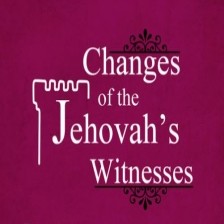“Henceforth he was like one dead. He was not allowed to study with others, no [social] intercourse was to be held with him, he was not even to be shown the road. He might, indeed, buy the necessaries of life, but it was forbidden to eat or drink with such an one.”—The Life and Times of Jesus the Messiah, by A. Edersheim, Vol. II, p. 184.
The Watchtower Announcing Jehovah’s Kingdom. September 15, 1981. p. 21
In such cases the Jewish Law provided that the money was to be restored to the donor, and, if he insisted on giving it, that he should be induced to spend it for something for the public weal [well-being]. . . . By a fiction of law the money was still considered to be Judas’, and to have been applied by him in the purchase of the well-known ‘potter’s field.’” (The Life and Times of Jesus the Messiah, 1906, Vol. II, p. 575
Insight On the Scriptures-Volume II. 1988. p. 130-131
Alfred Edersheim located 456 passages to which the “ancient Synagogue referred as Messianic,” and there were 558 references in the most ancient rabbinic writings supporting such applications. (The Life and Times of Jesus the Messiah, 1906, Vol. I, p. 163; Vol. II, pp. 710-737)
Insight On the Scriptures-Volume II. 1988. p. 386
The Life and Times of Jesus the Messiah Volume I 1904 edition
The Life and Times of Jesus the Messiah Volume 2 1907 Edition
